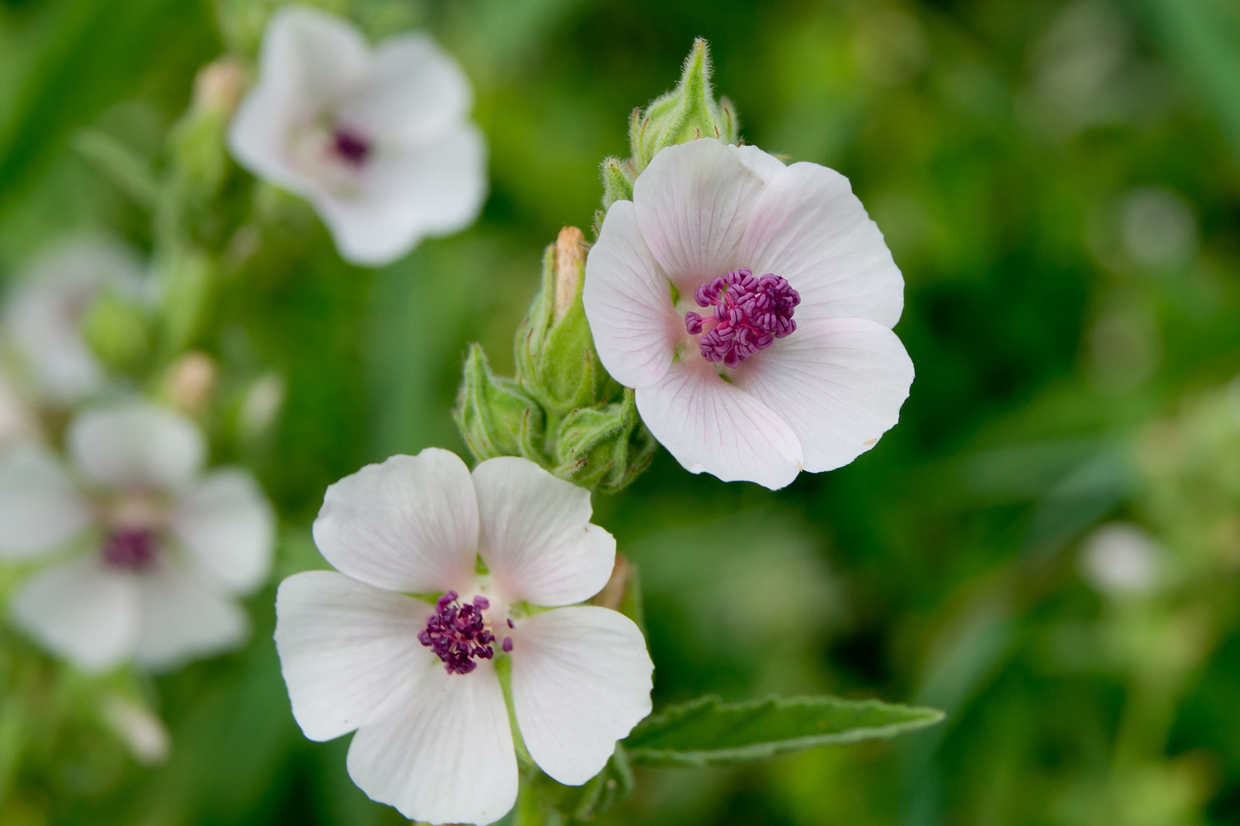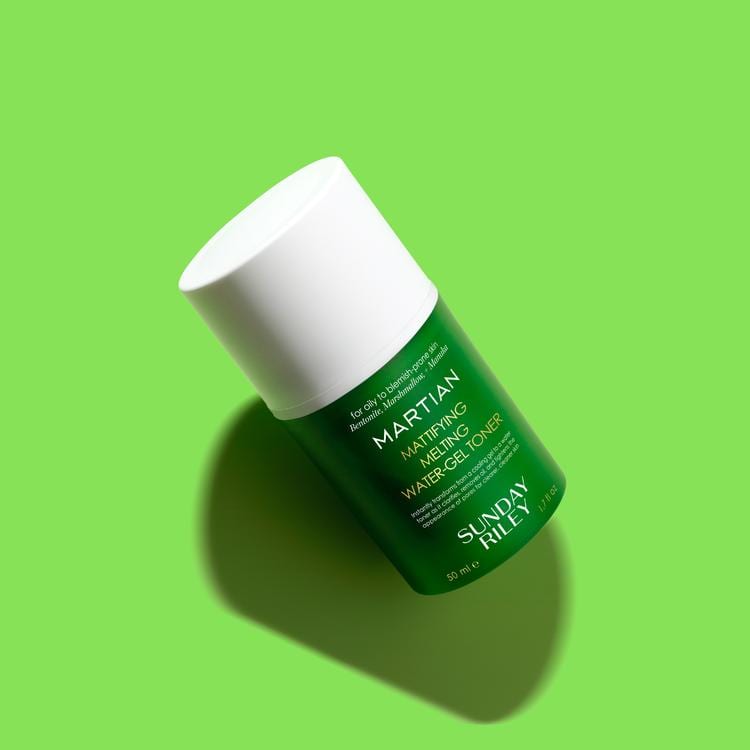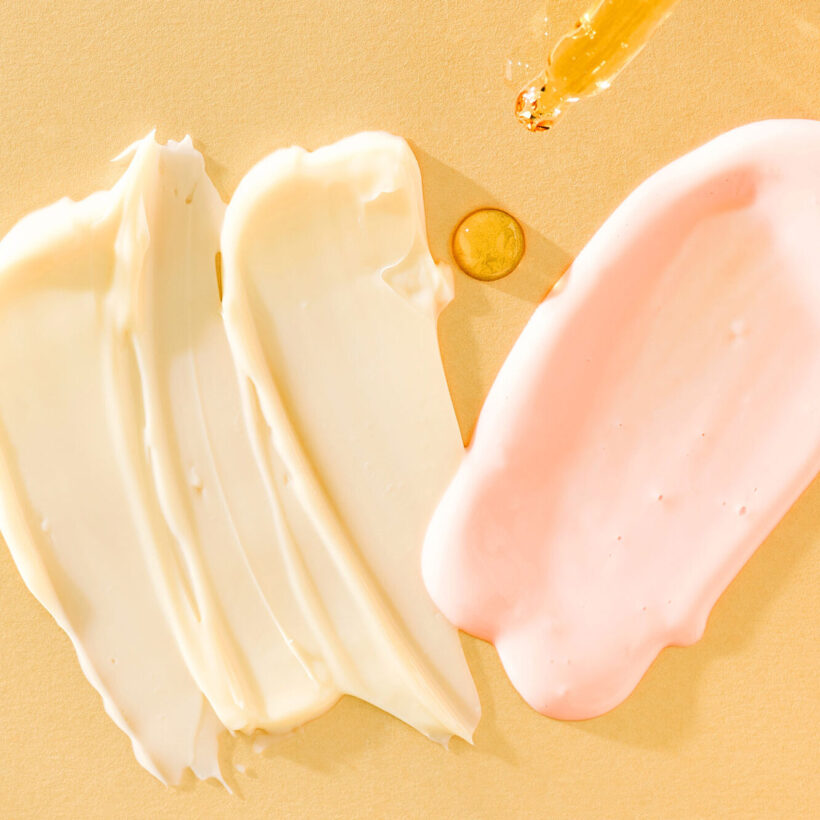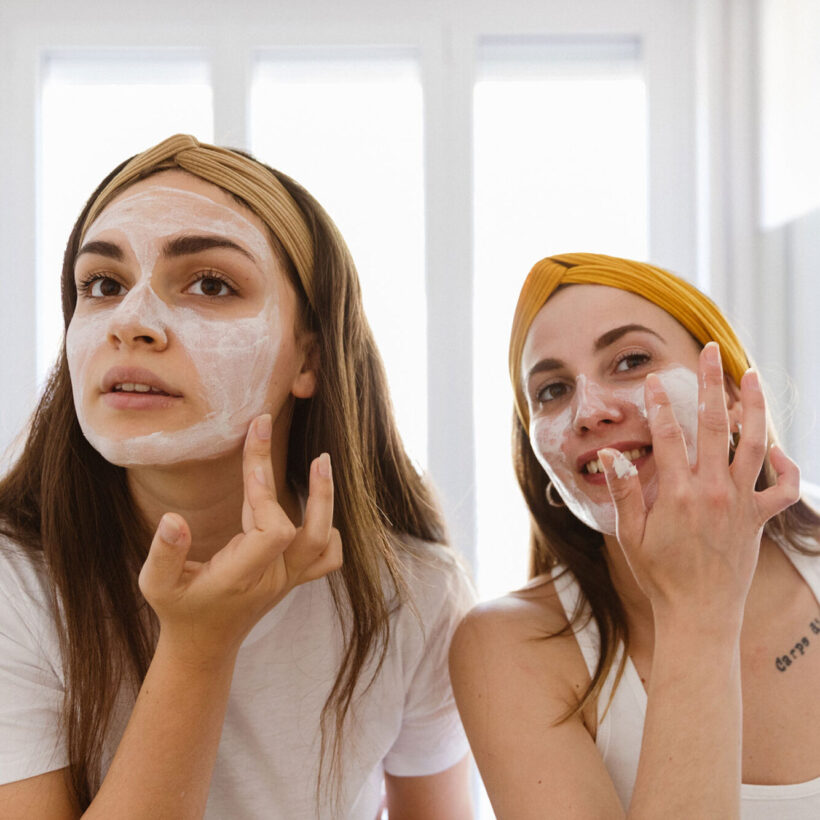Using marshmallow in anything but between a graham cracker and a slab of milk chocolate in a s’more might seem a bit “new age,” but the truth is that marshmallow root —Althea officinalis — is an herb native to Northern Africa, Europe and Western Asia long used in the food and medicinal traditions that date back to ancient Egypt. Lucky for us, its benefits go beyond overall health and into anti-aging properties that make it ideal for our skincare regime.
Marshmallow root has been used for centuries to relieve symptoms and treat conditions, especially related to respiratory, digestive, and skin health. It’s antibacterial and rich in antioxidants.
The root of the marshmallow plant contains a thick, gummy substance called mucilage, plus a slew of other ingredients like polysaccharides and flavonoids, which have antibacterial and anti-inflammatory properties that support skin health.
Meet the Experts
Sunday Riley , CEO, founder and product formulator
Karyn Grossman , M.D., a dermatologist at Grossman Dermatology in Santa Monica, CA
“Marshmallow root’s high amount of mucilage helps coat the skin,” says Sunday Riley, CEO, founder and product formulator. “It also has high amounts of ceramides, which help with hydration and repairing the skin barrier. In general, people with dry, sensitive skin could benefit from this ingredient, as it helps to hydrate and soothe the skin.”
The mucilage itself is very high in protein and considered a demulcent, which means that it swells up when it comes into contact with water and relieves irritation by forming a protective film over a mucous membrane. Not only will it protect the skin from the rigors of shaving, thanks to the mucilage wash, it also makes it a great option to treat skin conditions rooted in inflammation, like eczema, reduce fine lines and wrinkles, acne, and plump the skin.
Marshmallow root’s antioxidants support healthy cell function, promoting better skin and hair. Marshmallow root can aid in wound healing and reduce skin irritation and inflammation. It has immune-boosting and antibacterial properties that can help speed up the healing process. With anti-inflammatory and diuretic properties, marshmallow root can help reduce water retention (edema). ‘”I chose marshmallow root for our Martian formula because of its powerful anti-inflammatory and soothing properties. It’s an incredibly versatile ingredient that helps calm irritated skin and reduce inflammation, making it perfect for those dealing with acne. Marshmallow root not only aids in healing but also provides a gentle, natural solution for maintaining clear and healthy skin,” explains Riley.

Grossman also thinks it is safe to incorporate into hair routines, particularly for people with brittle and damaged hair, as it can make the strands appear thicker. In general, its moisturizing and plumping properties give a volumizing effect with a bit of slip that helps hair feel smoother. The glycerin also functions as an emollient that softens skin and moisturizes hair.
“This ingredient works well in hair care products, as the mucilage can bind to the hair shaft, improving texture and detangling,” says Grossman. Look for it in shampoos and scalp scrubs that address irritated scalp issues.
But skincare is not the only way to see results from this ingredient. “Some people ingest marshmallow root,” says Grossman. “It’s been used for many years in herbal medicine to help with coughs and digestive problems like Chron’s disease.” Commercial marshmallow root tea is usually steeped for five to ten minutes. Follow the directions on the packaging.
Studies have found that the root helps reduce inflammation and irritation associated with respiratory problems rooted in excess mucus production — think coughs, colds and even sore throats. Similar to how mucilage reduces irritation in the skin, it reduces irritation in the respiratory tract and the lymph nodes. To harness its soothing powers, marshmallow tea may work wonders, since it soothes almost everything it touches, treating swelling of the mucous membranes in the respiratory tract, and even the stomach lining.
But, remember, while you might be tempted to warm up the sticky candy confection we have known and loved for years, a marshmallow, as we know it today, is no longer made from the real marshmallow root. Instead, you can find marshmallow root extract in liquid form, which you can work into anything from face masks to hair washes — or better yet — find yourself a good serum or toner that includes the star ingredient, like Martian by Sunday Riley. It instantly transforms from a cooling gel to a mattifying water toner as it clarifies, removes oil, and visibly tightens the appearance of pores for clear, shine-free skin. Formulated to target oily and blemish-prone skin concerns.
Marshmallow and green tea soothe and cool the signs of redness and sensitive skin, for a calmer-looking complexion, while cucumber and witch hazel extracts tone and tighten. Skin is visibly cleaner, mattified, refreshed, and prepped for further skincare or color application.
HOW TO USE: Apply after cleansing. For best results, use fingertips to massage Martian water-gel toner into the skin. Toner instantly melts from a cooling gel to a mattifying water toner upon application.








